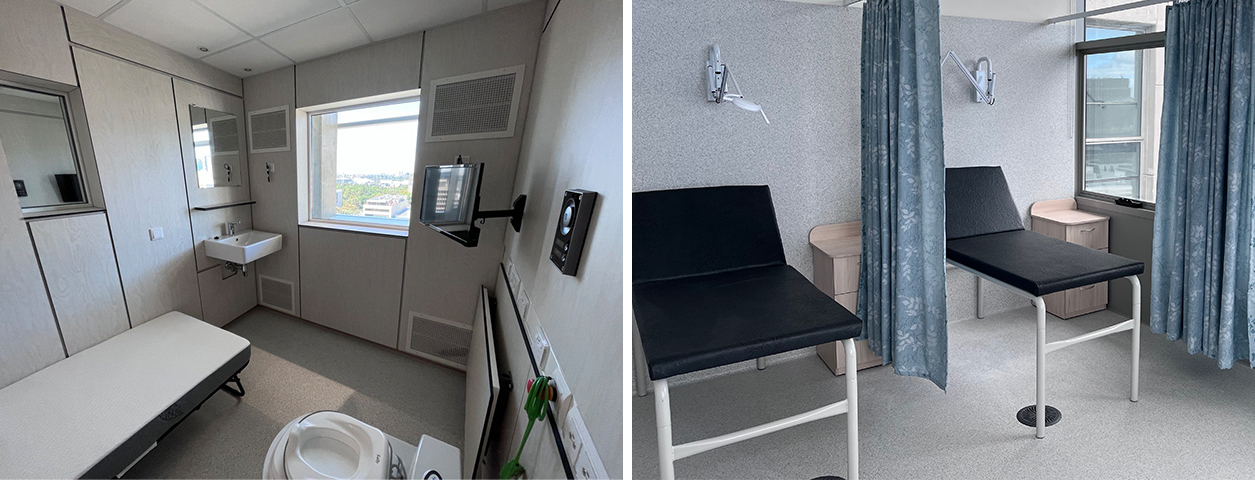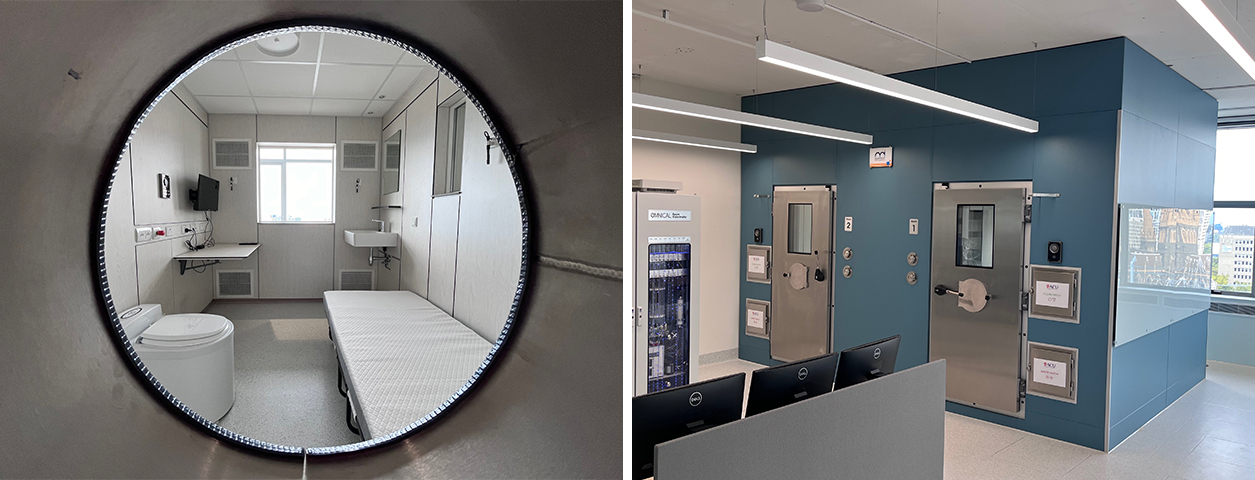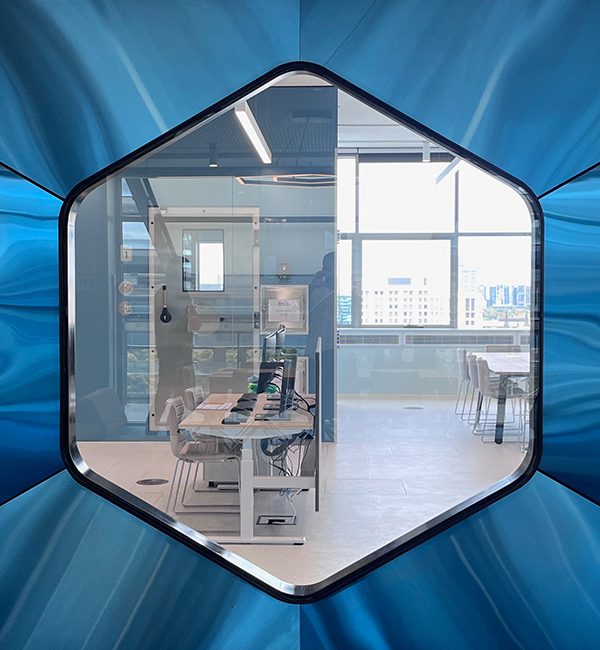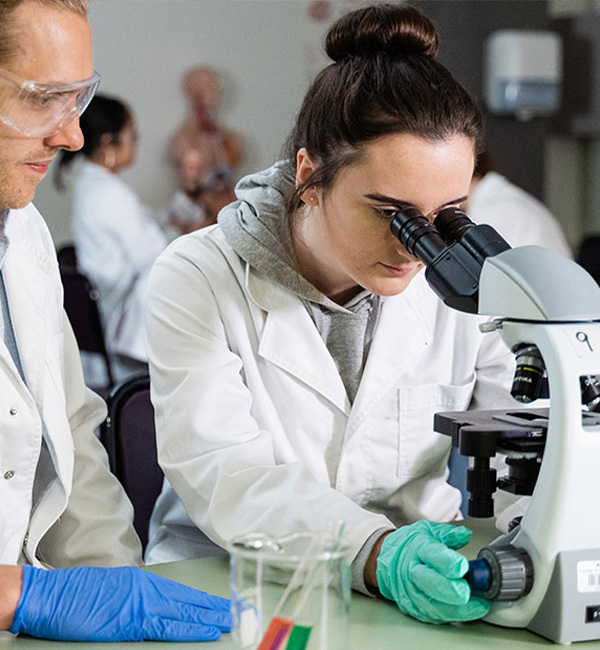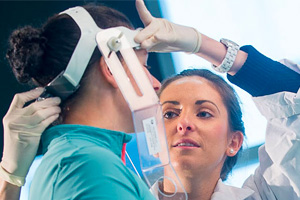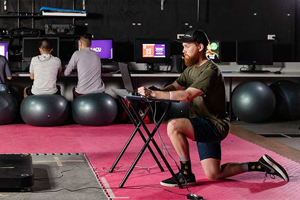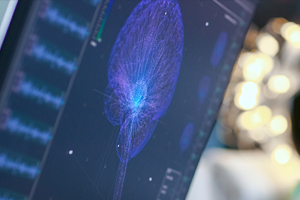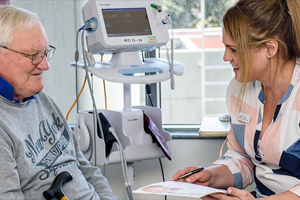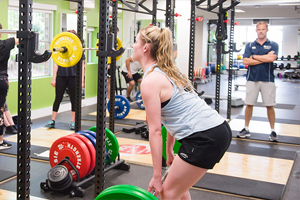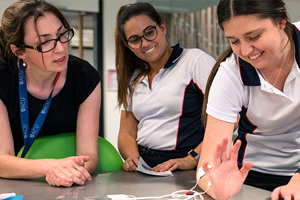A whole-body room calorimeter (also known as a metabolic chamber or respiration chamber) is an airtight room in which patients or trial participants reside for a set period of time, ranging normally from 24 hours to several days. Whole-body room calorimetry allows us to monitor subjects for such extended periods of time while in a free moving environment that permits differentiation of different components of energy expenditure such as sleeping, resting, physical activity as well as assessing the thermic effect of food.
The whole-body room calorimeter is continuously ventilated with “fresh air” and the expired gases by the study participants are mixed and extracted. Both inspired and expired gases are sampled to simultaneously determine oxygen consumption and carbon dioxide production. Over the time spent in the chamber, highly accurate analysis of the contribution of body fat, carbohydrate and protein to energy expenditure is therefore possible.
The system allows for a broad range of temperature settings which can be manipulated to examine the effect of different ambient temperature and humidity conditions on energy metabolism. However, in most settings temperature and relative humidity are kept relatively constant during a measurement period.

